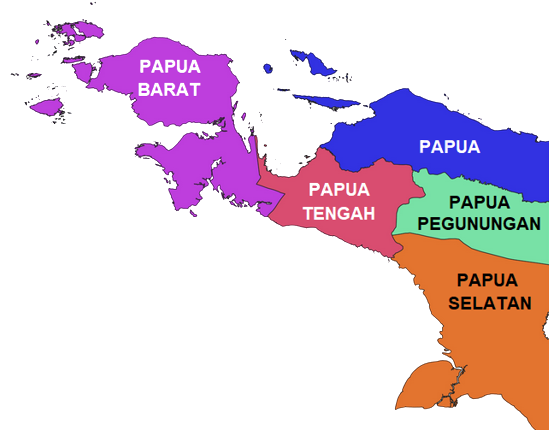The Government Continues to Push for the Effectiveness of Governance in the Papua New Guinea
Papua – The government through the Ministry of Home Affairs (Kemendagri) continues to encourage the effectiveness of governance in the 4 New Autonomous Regions (DOB) of Papua. In a new province, everything is new, but regulations need to be enforced so that government procedures run smoothly. Effectiveness needs to be maintained so that administrative services run smoothly.
The request of the Papuan people was achieved when the government inaugurated 4 new autonomous regions namely the Provinces of Southwest Papua, Central Papua, South Papua and Highlands Papua. Papua Island which covers more than 400,000 km2 is too big if it only has 2 provinces (Papua and West Papua). Therefore it is necessary to expand the area so that the community is more prosperous, because the management is easier (thanks to the close proximity to the provincial government office).
The people of Papua are very grateful for the inauguration of the four new autonomous regions because their lives will be better. The government also continues to provide support by providing APBD funds, and arranging for the administration of government in the new provinces to be more effective. After there is a new province, of course there must be an arrangement so that the performance of civil servants can be maximized in serving the people.
The Director General for Regional Development Development at the Ministry of Home Affairs, Teguh Setyabudi, said that his party was committed to overseeing the governance of the 4 new autonomous regions in Papua. This commitment is evidenced by the submission of the Regional Government Work Plan (RKPD) documents to the Acting (Acting) Governors in 4 Papua New Guinea.
The document includes development plans in various sectors. Among them, the application of Minimum Service Standards (SPM) and the conception of the preparation of Regional Spatial Plans (RTRW) as documents in achieving governance implementation.
Minimum Service Standards (SPM) are provisions regarding the Types of Basic Services and Quality of Basic Services that every citizen has the right to obtain at a minimum in order to provide maximum public services to the community oriented towards the realization of excellent public services.
The action plan document for implementing SPM is prepared as operational steps in order to achieve targets for 6 fields of mandatory affairs. In a sense, the central government is trying to organize services in the new provinces in Papua to be maximized, with the application of minimum service standards.
With the enactment of the SPM, it is the people of Papua who benefit because they get the maximum service. One of the goals of adding new autonomous regions is to bring services closer to residents on Cendrawasih Earth. When the distance to the new provincial government office is closer, they are entitled to good administrative services from ASN.
The additional new autonomous regions are aimed at the people of Papua, not for the ambitions of the central government. One of the objectives of adding new autonomous regions is to facilitate services to the community. Service to the people must be prioritized because the real function of government is to serve its people.
The government hopes that regional expansion will distribute various services throughout Papua. If there is an even service, then the people will benefit and they will develop their territory with enthusiasm.
Meanwhile, Deputy Home Affairs Minister John Wempi Wetipo stated that with the formation of the 4 new autonomous regions, there are new challenges and responsibilities that must be faced together. The central government must ensure that the administration of government and public services continues.
John Wempi added, in realizing better governance, Wempi mentioned the need for commitment from all parties, both from the central and regional governments in the 4 new autonomous regions. This is because the 4 new autonomous regions need to carry out a number of priority agendas, one of which is the development of infrastructure. In this context, the government has formed the Task Force for the Acceleration of Development of Infrastructure and Facilities for the New Autonomous Region of Papua in Papua.
The government is committed to the progress of Papua by formalizing a Presidential Regulation (Perpres) concerning the Steering Committee for the Acceleration of the Development of the Papua Special Autonomy (BP3OKP) and the Presidential Decree concerning the Master Plan for the Acceleration of the Development of the Papua Special Autonomy 2021-2041 (RIPPP). With these regulations it will be easier to modernize Papua and encourage the effectiveness of local government in Cendrawasih Land.
In order to make the acceleration program successful, apart from regulations, cooperation from various parties is also needed, including the West Papua People’s Council (MRPB), so that the legal basis that has been issued can be properly implemented in the field. With the cooperation between the central government, local government, and the MRPB, the people are optimistic that Papua will be more advanced.
The Ministry of Home Affairs is very serious about promoting the effectiveness of governance in the 4 new provinces in Papua. Regulations are formed and put into practice to benefit the Papuan people, because they get the most out of ASN. Papuans will have more orderly administration because the distance to the provincial government building is getting closer and they get good service.
